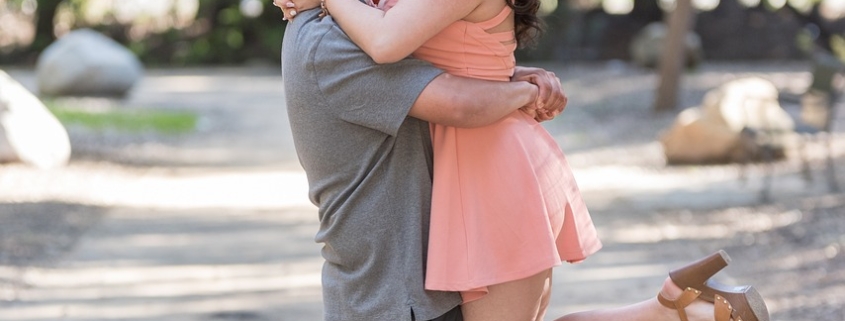When couples face the challenge of addiction together, finding the right treatment program becomes essential—not just for recovery but for the relationship itself. However, one of the biggest barriers to seeking help is often the cost of rehab services. Fortunately, there are affordable options available that can help couples access the care they need without breaking the bank.
If you’re searching for affordable couples rehab, Couples Rehab, a trusted provider of addiction treatment services, can guide you through this journey with compassion and expertise. Couples Rehab specializes in helping partners recover together, offering customized programs designed to fit a variety of financial needs.
Why Choose Couples Rehab?
Couples rehab programs are unique in their ability to address addiction within the context of a relationship. Traditional rehabs often separate individuals during treatment, but at Couples Rehab, the focus is on healing as a unit. This collaborative approach strengthens emotional bonds, improves communication, and creates a foundation for long-term recovery.
Couples Rehab offers:
- Personalized Treatment Plans: Tailored programs that cater to the specific needs of both partners.
- Therapeutic Modalities: Including individual therapy, couples counseling, and group sessions.
- Flexible Payment Options: Affordable plans and resources to make treatment accessible.
- Experienced Staff: Licensed professionals who specialize in couples therapy and addiction recovery.
Understanding the Costs of Couples Rehab
Before diving into affordable options, it’s important to understand what contributes to the cost of rehab programs. Knowing these factors can help you make informed decisions and prioritize services that align with your budget and needs.
Common Factors Affecting Rehab Costs:
- Treatment Duration
The length of a program—whether it’s 30, 60, or 90 days—significantly impacts the overall cost. Longer stays often provide more comprehensive care but come with higher expenses. - Program Type
Inpatient programs (where couples stay at the facility) generally cost more than outpatient programs, which allow participants to return home after treatment sessions. - Services and Amenities
Luxury rehabs may offer high-end accommodations, spa treatments, or gourmet meals, driving up costs. However, affordable facilities like Couples Rehab focus on essential services without unnecessary frills. - Location
Facilities in metropolitan areas or popular destinations often charge more. Choosing a rehab in a less expensive area, like Couples Rehab’s convenient location, can help save money. - Insurance Coverage
Many insurance plans cover some or all aspects of addiction treatment. Couples Rehab in Orange County works with a variety of insurance providers to reduce out-of-pocket expenses.
Affordable Couples Rehab: Your Options
Affordable treatment doesn’t mean compromising on quality care. Here are several practical strategies to find budget-friendly couples rehab programs:
1. Leverage Insurance Benefits
Check your health insurance policy to see what addiction treatment services are covered. Many insurance providers cover rehab costs under mental health and substance abuse benefits. Couples Rehab offers a free insurance verification service, helping you understand your coverage and maximizing your benefits.
2. Consider Outpatient Programs
If you’re looking to reduce costs without sacrificing treatment quality, outpatient programs can be an excellent choice. Outpatient care at Couples Rehab provides flexibility and affordability, allowing couples to maintain work or family responsibilities while attending therapy sessions.
3. Look for Sliding Scale Fees
Couples Rehab offers sliding scale fees based on income, making it easier for couples to access affordable care. This payment model ensures that financial limitations don’t prevent anyone from seeking help.
4. Explore State-Funded Programs
Some state-funded rehab programs provide affordable or even free services for qualifying individuals. Couples Rehab can connect you with local resources to help supplement treatment costs if needed.
5. Payment Plans
For those unable to pay the full cost upfront, Couples Rehab provides flexible payment plans. Spreading the cost over time can make treatment more manageable without adding financial stress.
6. Scholarships and Grants
Nonprofit organizations and government grants sometimes offer financial assistance for addiction treatment. Couples Rehab’s admissions team can guide you toward potential funding sources to support your recovery journey.
What to Look for in an Affordable Couples Rehab Program
While affordability is important, it’s essential to choose a program that delivers effective, evidence-based care. Here’s what to prioritize when evaluating affordable rehab options:
Comprehensive Services
Ensure the facility provides a full range of services, including detox, therapy, and aftercare support. Couples Rehab takes a holistic approach to recovery, addressing both addiction and relationship dynamics.
Accreditation and Licensing
Reputable rehabs should be licensed and accredited by recognized organizations. Couples Rehab meets all industry standards, ensuring high-quality, ethical care.
Positive Reviews and Testimonials
While cost is a factor, the experiences of past clients can provide insight into a program’s effectiveness. Couples Rehab has earned a strong reputation for helping couples rebuild their lives.
Supportive Environment
Healing as a couple requires a safe, non-judgmental space. Couples Rehab fosters a nurturing atmosphere where both partners can grow individually and together.
Benefits of Couples Rehab at Couples Rehab
Affordable options aside, choosing Couples Rehab offers numerous benefits that go beyond financial considerations:
- Improved Relationship Dynamics: Therapy sessions at Couples Rehab focus on rebuilding trust, enhancing communication, and fostering mutual support.
- Relapse Prevention Skills: Couples learn practical tools to maintain sobriety and support each other in recovery.
- Stronger Emotional Connections: Joint treatment strengthens bonds and encourages long-term commitment to a healthy, addiction-free lifestyle.
- Convenience and Accessibility: Couples Rehab offers easy access to high-quality care without the need for extensive travel.

Taking the First Step Toward Affordable Couples Rehab
Embarking on a recovery journey as a couple is a brave and life-changing decision. While the cost of treatment can be daunting, affordable options like those offered by Couples Rehab ensure that financial constraints don’t stand in the way of recovery.
At Couples Rehab, you’ll find compassionate care, flexible pricing, and a team dedicated to your success. Whether you’re exploring insurance coverage, sliding scale fees, or outpatient programs, Couples Rehab is here to guide you every step of the way.
Frequently Asked Questions (FAQ) About Couples Rehab
1. What is couples rehab, and how does it differ from individual rehab?
Couples rehab is a specialized addiction treatment program designed for partners who want to recover together. Unlike individual rehab, it focuses on healing both individuals and the relationship. At Couples Rehab, we incorporate couples counseling, joint therapy sessions, and strategies to rebuild trust and communication while addressing addiction.
2. How can I find affordable couples rehab options?
Finding affordable couples rehab involves exploring insurance coverage, payment plans, sliding scale fees, and outpatient programs. At Couples Rehab, we offer flexible payment options and work with various insurance providers to ensure quality care is accessible to all couples.
3. Does health insurance cover couples rehab?
Many insurance plans include addiction treatment under mental health and substance abuse benefits. At Couples Rehab, we provide a free insurance verification service to help you understand your coverage and minimize out-of-pocket expenses.
4. What types of therapy are included in couples rehab programs?
Couples rehab programs typically include individual therapy, couples counseling, group therapy, and family support. At Couples Rehab, we use evidence-based methods like cognitive-behavioral therapy (CBT), trauma-focused therapy, and relapse prevention strategies to support recovery.
5. Is inpatient or outpatient couples rehab better?
The choice between inpatient and outpatient rehab depends on your needs. Inpatient rehab provides immersive, 24/7 support, while outpatient rehab offers flexibility for those with work or family responsibilities. Couples Rehab offers both options, helping couples choose the program that best suits their situation.
6. What are the benefits of couples rehab?
Couples rehab strengthens relationships while addressing addiction. Benefits include improved communication, mutual support during recovery, and relapse prevention strategies. At Couples Rehab, our tailored approach ensures that both partners can heal together and build a healthier future.
7. How long does a couples rehab program last?
The duration of couples rehab varies depending on the severity of addiction and treatment goals. Programs typically range from 30 to 90 days. At Couples Rehab, we customize treatment plans to fit your unique needs and recovery timeline.
8. Can both partners have different levels of addiction in couples rehab?
Yes, couples rehab can accommodate partners with varying levels of addiction. Our team at Couples Rehab creates personalized treatment plans to address each individual’s specific challenges while focusing on the relationship’s overall health.
9. What should we bring to couples rehab?
If you’re attending inpatient couples rehab, bring essentials like comfortable clothing, personal hygiene items, and any necessary medications. Our admissions team at Couples Rehab provides a detailed checklist to help you prepare for your stay.
10. What happens after completing a couples rehab program?
After rehab, ongoing support is critical for maintaining sobriety. At Couples Rehab, we offer aftercare programs, including follow-up counseling, support groups, and relapse prevention planning to help couples transition back to everyday life successfully.
Conclusion: Prioritize Your Recovery Without Breaking the Bank
Finding affordable couples rehab options doesn’t have to be overwhelming. By leveraging insurance, exploring payment plans, and choosing the right program, you can access high-quality care that fits your budget. At Couples Rehab, you and your partner can heal together, supported by a team that understands the unique challenges of addiction and relationships.
Recovery is within reach—take the first step today. Contact Couples Rehab to learn more about affordable treatment options and start your journey toward a healthier, brighter future.















